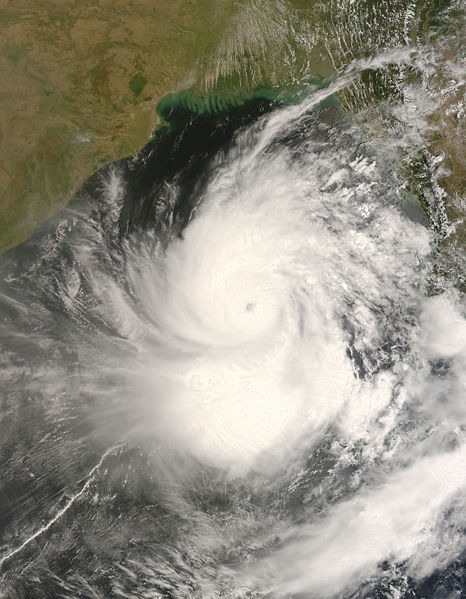|
Cyclone Nargis - A Unique Opportunity for the Conscientious Marine Aquarist

We at Blue Zoo Aquatics launched a sale last week on zoanthids flown in from a Jakarta airport. It was the very same airport where a United States military transport plane full of relief supplies for victims of cyclone Nargis sat awaiting permission to deliver those supplies to the people of Myanmar (formerly Burma). The fact that the government of Myanmar refused aid from the United States for so long has rightfully received a lot of airtime in Western news circles, but there is another story that has largely been ignored by major media outlets. We want to address that story here, because at Blue Zoo, we believe that keeping marine aquaria is more than just a hobby. We believe that having a marine aquarium in your home is a rare opportunity to connect with ecosystems and cultures that most people never have the opportunity to experience. We also believe with that opportunity comes a responsibility—hence this article.
We are fortunate that we, as a nation, have the wealth and resources to respond to a humanitarian crisis anywhere on the globe with lighting speed, and we should be outraged when our assistance is denied because of politics and geopolitical paranoia. But we should also be outraged that long before cyclone Nargis hit the coast of Myanmar, we, as a global community, were not doing more to limit our impact on global climate change. Global climate change—and, more specifically, warming sea temperatures fueled by carbon emissions from industrialized countries like the United States—is believed to be one factor contributing to the increased storm activity experienced throughout the Indo-Pacific.
Last year, the Intergovernmental Panel on Climate Change (IPCC) was just one of many organizations to link intensifying tropical cyclone activity to increased tropical sea surface temperatures. The IPCC concluded that “based on a range of models, it is likely that future tropical cyclones will become more intense, with larger peak wind speeds and more heavy precipitation associated with ongoing increases of tropical sea surface temperatures.” Last year, an exceptionally powerful cyclone (cyclone Sidr) struck the heavily populated, low lying areas near Bangladesh with catastrophic results. Now we are witnessing the devastation in Myanmar.
“Climate change is urgent, real and happening,” says Sunita Narain the director of the Centre for Science and the Environment (CSE). “But we do not connect the dots to recognize the fact that the tropical cyclone Nargis, which has led to such enormous devastation in Myanmar, is also because of changing climate.”
But are we really to blame? Is America’s dependence on fossil fuels really a contributing factor? Answering this question is, as Sunita Narain puts it, “the challenge of climate science.” Narain contends that “while we will never be able to make absolute predictions or direct correlations between events that we see around us and the warming that is now inevitable, there is enough evidence to make connections.”
At Blue Zoo Aquatics, we’re not here to point fingers, but we do feel it is important to think outside the box. Our primary job is to provide you with access to a magnificent undersea world in a manner that is sustainable and focuses on the animals’ health and wellbeing. At the same time, we believe we would be irresponsible if we didn’t at least consider the connectedness of two planes sitting on a runway in Jakarta—one bound for the United States with beautiful species collected from the Indo-Pacific for your aquarium and the other one carrying supplies for millions of victims of a storm arising from the very same waters.
At Blue Zoo, we think education is as important as sales because, in part, an educated hobbyist is a successful hobbyist. Education for us, however, goes far beyond husbandry tips. That’s why we have been publishing the Collection Point series of articles; we want you to begin to learn about the ecosystems and cultures from which your animals originate. Knowledge is power, and it is our opinion that marine aquarium hobbyists should be on the front line of reef conservation—not only because the hobby is dependent upon these reefs, but also because of the fact that through the hobby, we have developed a profound appreciation for these reefs.
Is driving an SUV in California contributing to tens of thousands of deaths in Myanmar? Is a New York family’s unwillingness to drastically lessen their carbon footprint really responsible for sea surface temperature increases on the other side of the globe? We believe that these are the discussions that reef aquarists should be having when friends and family come over and admire their tanks. What an opportunity we have—not to preach, but to engage in dialog about the connectedness of our planet. Regardless of the conclusions people reach, having the conversation makes us all more aware.
So next time you look at your aquarium, consider that your piece of the ocean is representative of something much larger. If this leads you to consider ways to lessen your own carbon footprint, great! If it inspires you to make a donation to disaster relief for the victims of cyclone Nargis, fantastic! But even if it simply leads you to start a conversation with a friend or family member about how our actions and the way we choose to live our lives can have implications on people we have never even met, then you have not wasted an opportunity. You are, as Bob Fenner would say, a conscientious marine aquarist, and we at Blue Zoo are proud to call you our customer. Thank you.
|